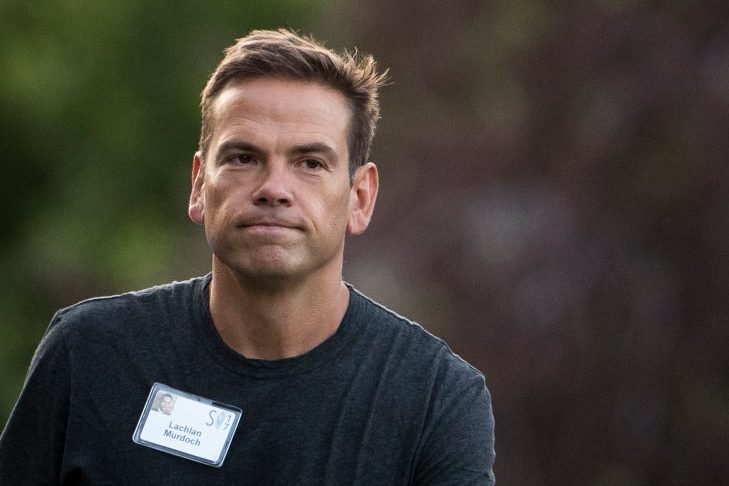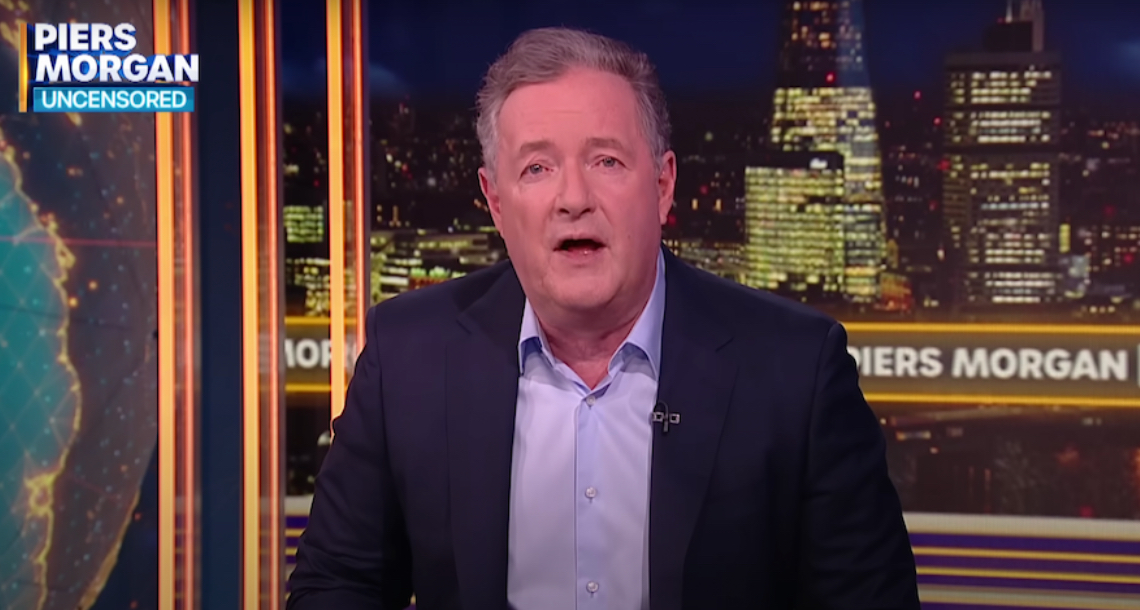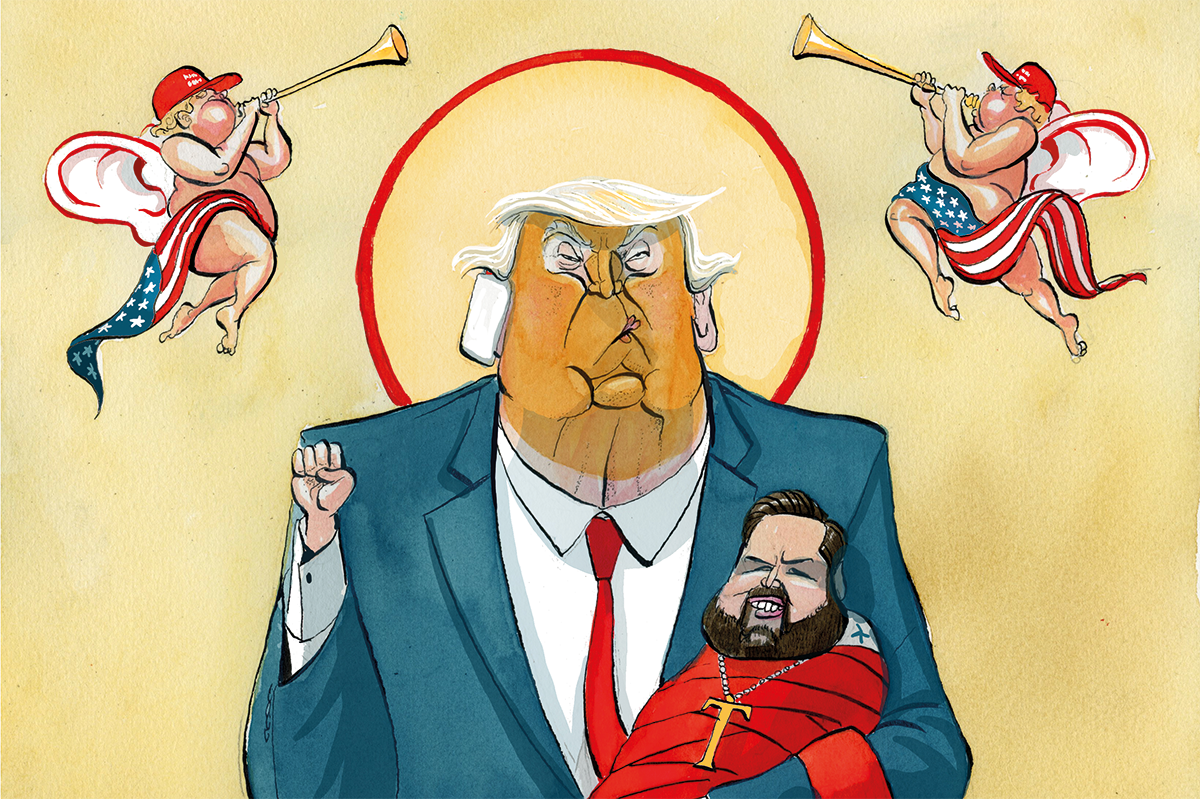Recently I dined with an old American friend at my home in Sydney. He brought up the sacking of the Fox News host Tucker Carlson, reportedly for, among other things, using a terrible curse word, which my friend referred to coyly as “C U Next Tuesday.”
I was baffled for a minute.
“Do you mean ‘c—’?” I asked.
“Oh, don’t say that!”
“C—, c—, c—!” I cried. He cringed as if being assaulted physically.
Fresh from the news about Carlson, the New York Post reported that ESPN fired journalist Marly Rivera for using the word against a female colleague trying to muscle in on her interview with Yankee player Aaron Judge.
Why does it upset Americans so much?
In my native Australia, profanity is rooted — so to speak — in the national character, part of its manly, frontier origins. “F— me dead,” as an expression of incredulity, or “tough titties,” meaning “deal with it,” are routinely employed by both men and women.
The veiled blasphemies, “crikey” and “strewth,” along with “bugger,” “bastard” and “bullshit” are now so harmless as to be quaint, deployed by politicians to convey authenticity in a country that despises uppitiness.
Prime Minister Bob Hawke, who held the world record for downing a yard of ale while at Oxford on a Rhodes Scholarship, redeemed his larrikin image after that sojourn in Pommieland with fruity rhetoric. During tense trade dealings in the 1980s, he reportedly assured Japan’s foreign minister that he wasn’t “going to play silly buggers with you Japanese,” which a translator duly conveyed as: “the Australian prime minister does not wish to appear as a laughing homosexual.”
“C—,” though you wouldn’t say it to your mother, is more of a gentle rebuke Down Under, as in “don’t be such a stupid c—.”
Has Lachlan Murdoch, who reportedly brought down the ax on Carlson, drifted so far from his Aussie roots?
Americans are also very good at swearing. In a competitive Anglophone field, they lead the way in using bad language for comic effect. Watch The Blues Brothers bleeped for TV, and it loses all meaning. They’re not shy about dirty words for women, either. “Bitch” has more nuances in American English than any equivalent insult in Australia. And even after generations of overuse, the expletive about doing unspeakable things to mothers retains its zing.
What does the way people swear say about a culture? Yiddish has inserted into the English lexicon more catchy names for “penis” than any ordinary man would have need of. Punjabi is said to have an overabundance of colorful curse words — usually to do with mothers and sisters.
In Tokyo, where I lived for five years, I quizzed a close friend about profanities, a topic my teachers at the Iidabashi Language School had overlooked. She said the most offensive thing you can tell a person is that they have a large asshole, though in earthier, octopus-balls eating Osaka, it can also be taken as a compliment. If there’s a Japanese c—, I never learned it.
The Irish and Scots have no beef with the “c”-word. The bucolic idyll, The Banshees of Inisherin (which strikes me as about as Irish as a Vegemite sandwich), would have a run time of thirty-six minutes if they’d cut out all the “c—”s.
In England it’s more of a class thing. In the decade I spent in London’s East End, I didn’t rub up much against the aristocracy, but they’re said to be keen on swearing. I can imagine Camilla snuggling up to HRH to whisper that deplorable synonym for front bottom.
The lower class, no doubt mindful of its Chaucerian origins, use “c—” freely, mostly directed at men, sometimes as an incitement to violence, but often, in the Australian way, merely to disparage.
The English bourgeoisie, straitlaced and prosaic, never swear at all, which, paradoxically, only adds to the disdain in which they are generally held. The “c”-word is acceptable, but only in the sterile usage reclaimed by feminists as a term for women’s genitals that’s not as silly as “fanny.”
And this might be at the heart of it. Some people are drawn to forbidden words just as they’re drawn to forbidden ideas. They deploy them profligately, unconcerned by the offense they give or the possibility that articulating them may use up their potency. The restless imagination offers infinite new ways to disconcert.
“I decided to take the sting out of it,” said Richard Pryor, the most disconcerting swearer of all time, of the worst word he knew. “N—. As if saying it over and over again would numb me and everybody else to its wretchedness.”

























